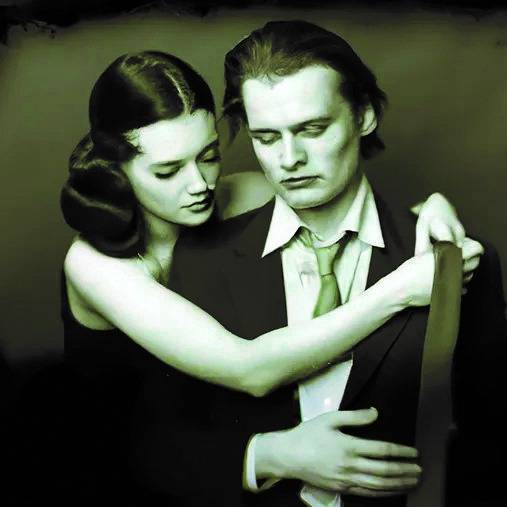The history of rock music is dominated by the vexed question of authenticity. Watching the latest in Channel 4's line of cheapo TV best-ofs, The 100 Greatest Albums, got me thinking again about a concept I thought we could happily consign to the past. There seemed to be an underlying theme as the familiar faces flashed by making their case for this or that woeful bit of past-its-sell-by-date rock. I lost count of the albums which "defined a generation", "told it like it really was", or spoke directly to the emotions. What is striking about all this is that despite the influence of postmodernism – which like it or not has succeeded in putting quotation marks around the notions which used to underpin our aesthetic judgments – in the realm of pop, critics and audience alike find it hard to move beyond the rather well worn concept of "realness".
The dialectic between what is authentic and what ain't takes on a different shape in different musical genres. It is counterposed to different versions of in-authentic. But within pop music, unlike in the high arts of the novel, "classical" music, even film, where notions of the authentic are routinely toyed with and undermined, the assumption remains that rock is there to deliver reality.
The pop music academic Dave Hesmondhalgh's analysis of the fundamentals of the "rock and soul paradigm" continue to be useful in understanding this literalistic version of authenticity that is still at play in pop.Hesmondhalgh summarises this rock and soul paradigm as a series of oppositions (where the second term is the quality which is celebrated, the first the fatal sign of inauthenticity); between mass and community; commerce and creativity/art, artificiality and sincerity. What Hesmondhalgh reveals are the various strategies used by rock fans and critics to defend their chosen music, in terms of this rock ideology. He shows that the rock paradigm (although he calls it the rock and soul paradigm, rock is clearly the dominant partner, at least in setting the terms of judgement) is derived from a form of 19th century romanticism, and recycles tactics used by artists down the centuries, but in uniquely hysterical way.
Why? Because pop music, of which rock is a significant, if reluctant, part, is profoundly a commercial form ' it exists to be sold; commercial logic is its fundamental motor. Which is why audiences and critics spend a long time disavowing commerce, and justifying the true value of their chosen artist in terms of something other than money, in terms of "reality", truth, beauty and emotional honesty.
Signs of these techniques of justification were everywhere in Channel 4's 100, in an increasing crescendo as the programme wore on. The lower reaches of the chart were smattered with records made by artists who do not conform comfortably to the rock and soul paradigm – Public Enemy, Bjork, Joni Mitchell, Air, Kraftwerk. But even with these albums, when the programme bothered to devote more than a micro-second to them, the well worn terms of rockist language appeared. Bjork, for example, as uncategorisable as successful pop acts come, was confined to the box marked 'weird but genuine' because she supposedly expresses the inner weirdness of Iceland. Her music, however synthetic and highly wrought, is reduced to an authentic symbol of "Icelandicness". Hip hoppers De la Soul were feted for their album 3 Feet High and Rising which, we were told, introduced a note of fun and artful play into the grim hip hop landscape hitherto obsessed with violence and death. Aside from the fact that this is wrong ' whichever ingénue they selected to voice this sentiment obviously chose to forget the great early party rap of Grandmaster Flash and Whodini ' in asserting De La Soul's artistic credentials, it inevitably consigned everyone else working in hip hop to the status of derivative moneygrubber, even though the techniques they use (sampling, cut and paste, word play) are identical.
Sometimes it was the telling detail that made the ideological point. In a brief discussion of French band Air's album Moon Safari – a record that reeks of humorous pretension and ironic distance – the fact slipped out that it was recorded in the front room of one of the band members (aka Paris garret?), and you could tell this because if you listen closely you can hear the school children playing across the road. In one move Air, the troubadours of artifice, are anointed authentic – the kids voices cutting through to assert a reality of place, and recording in their own houses, without access to a flash studio, confirms their struggling artist status.
If the poet suffering in his garret is one source of rock authenticity, the blues man plucking his guitar in the delta, or the soul man laying his emotions bare is another; rock's vision of authenticity is, as pop writer Gavin Mueller puts it, "derived from white music's idea of black music". In this sense much rock is like what Jean Baudrillard called a simulacrum, a copy of which there is no original, based on rock's misapprehension of black cultural creativity.
With soul there is the simplistic assumption – shored up by the whole infrastructure of racially essentialist thinking – that the music springs fully formed from the experience of being black in America. The assumption that soul is somehow free of construction, artifice, hard work and calculation underpins how soul plays within rock, as the model, the arbiter, the symbol of authenticity. What soul albums there were in the chart were dealt with cursorily, after all the story is so familiar by now. There in the lower depths was James Brown, then Aretha, Marvin Gaye and then Stevie Wonder. Each posited as a "brave" voice of authentic African-American experience speaking out against the wrongs of segregation and racism, expressing the soul of a people. Never mind the inner contradictions, the professionalism, the workaholism and extreme discipline (James Brown's is notorious as a hard worker and strict disciplinarian, fining players for bum notes), the avarice and bad decisions, the sophistication of the music. All soul, according to this taxonomy, is entrapped in the realm of authentic expression, which inevitably reduces it.
The soul singer is rock's noble savage. But the savage is mere background figure in the landscapes of "rock genius", and as we ascend the Channel 4 chart he falls into the distance, as art-as-suffering takes centre stage. The top three albums were, in reverse order, Nirvana's Nevermind, U2's Joshua Tree, and, at number one, OK Computer by Radiohead. Oasis and Guns 'n' Roses also featured in the top ten. The top three, and the hagiographying talking heads introducing them, are testament to the resilience of rock's myth of authenticity; embodied by the figure of the tortured rock poet. Sitting atop the heap was Radiohead's Thom Yorke – he of the paranoid android eyes, foreboding, hard-to-decipher lyric, pale intense features and anti-capitalist rhetoric. As such, he serves as surrogate for all the lost, suffering poets who sadly couldn't be with us tonight, due to their untimely, but inevitable, deaths – there's Kurt Cobain with a hole in his stomach, Joy Division's Ian Curtis hanging from a rafter, Jimi Hendrix face down in his own vomit. Each lionised for their suffering, their art and their genius, their rejection of the material world, their ability to voice a generation, their bravery in standing up to the suits and the pigs and the teacher and all those who would dare tell a teenage rebel to stand up straight and cheer up a bit. Each the paradigm of a rock hero.
Of course the rock paradigm does not have it all its own way. Elbowing their way into this cabal of tortured artists in the top ten were, ahem, Madonna and Michael Jackson. Just a little further down the road were Queen and Elton John. As in the world beyond music, girls and black people and queers present a big problem for pale intense white lads. On the one hand they suffer, they fight the system, they are heroic and noble. On the other they refuse to conform to their role. Instead of serving time as inspiration for disaffected white youth, these renegades camp it up, shamelessly pursue fame, switch styles at will, enjoy themselves, smile. Which is why rockists hate pop above all, unwilling to accept that their cherished music is in fact a subset of that benighted category, they reserve their greatest disdain for the camp and the manufactured, from Madonna to Steps, because it exposes the world of pop for what it is: trivial, sensational, glamorous, shallow, fun.
So much for the rock paradigm. What of the emergent dance paradigm that was supposed to shift the ground of the debate. Pop writers such as Simon Reynolds and Ekow Eshun looked to dance music to rescue us from the functionalist misconceptions of rock. Because dance music rejects the basis of rock authenticity: the human person and "the band" (dance is faceless, and made by shadowy figures called "producers"), the album as opus (dance is about single tracks, mixed and blended until you can't tell where one starts and the other ends), the real world community (the only community dance is interested in is that of the dancefloor where "everyone is welcome"), "real" instruments (dance glories in technology, emphasises artifice); it was fair to assume that as it rose to prominence it would sweep the rock paradigm away.
But it didn't. Instead the rock paradigm infiltrated dance – rock acts borrowing dance's clothes but reconnecting it to a narrative of the real (the whole MadChester baggy scene is an example of this), the rise of the "superstar DJ" whose face and name stands in for the band (Judge Jules, Paul Oakenfold, Sasha), the assertion of the emotional authenticity of the music, the emergence of "the dance nation" as a recognised social unit, the tiresome roll call of bloated concept albums. As the dance moment passes we are back firmly in the clutches of the rock paradigm, to the point where new dance artists such as LCD Soundsystem and Mylo insist on using "real" instruments and touring with live bands.
A guy I know thinks that popular music, audience, bands and critics alike, will never shake the "tedious dialectic" of authenticity, the real and fake, artist and sell-out, because pop is by definition caught between commercialism and art. Its very being contains this contradiction, which is what, arguably, keeps it going. I think he may be right.

